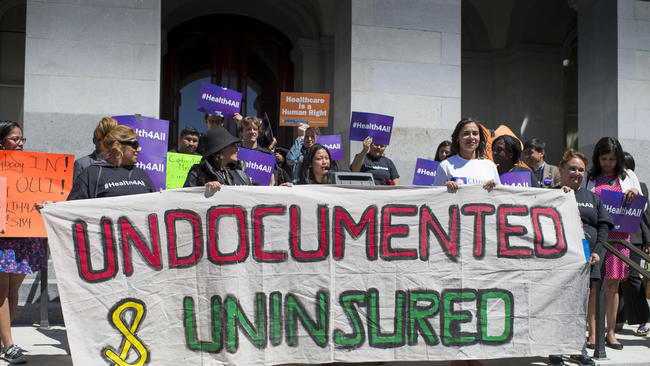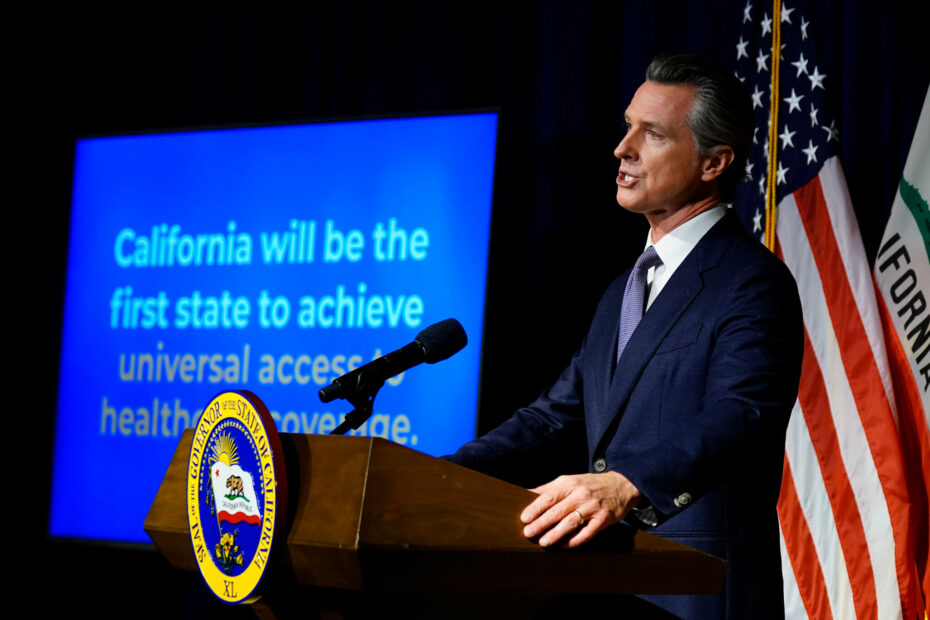California Introduces Universal Health Coverage for Undocumented Residents, taking a bold move, starting Jan 1 2024! Starting January 1, California will offer full Medi-Cal, California’s version of the federal Medicaid program. The target includes undocumented immigrants with low incomes. It is a historic shift that now includes comprehensive healthcare regardless of age or income. Previously limited, this expansion ensures a broader spectrum of services, marking a significant stride toward inclusivity.
In 2015, undocumented kids were allowed to join Medi-Cal. Then, in 2019, Governor Gavin Newsom made it possible for young adults aged 19 to 25 to get full Medi-Cal, regardless of their citizenship status. Later, even older adults over 50 got access, regardless of their immigration status.
Now, from January 1 2024, around 700,000 undocumented residents aged 26 to 49 can get full coverage. State Senator María Elena Durazo mentioned this big change, calling it a historic step showing California’s dedication to health care for everyone.
California’s commitment to accessible healthcare for all, regardless of income or immigration status, was emphasized by Gov. Newsom’s office in response to ABC News. They highlighted how this expansion ensures healthier families and communities by providing timely care.
The Governor’s office added
“Through this expansion, we’re making sure families and communities across California are healthier, stronger, and able to get the care they need when they need it.”
Governor Gavin Newsom ‘s Office
The Challenges of California Introducing Universal Health Coverage for Undocumented Residents

However, as California Introduces Universal Health Coverage for Undocumented Residents, there has been criticism of the expansion plan. The California Senate Republican Caucus expressed concern in their analysis of the 2022-23 governor’s budget. They pointed out that Medi-Cal already serves 14.6 million Californians, a significant portion of the population, and adding 764,000 more individuals could worsen existing issues with provider access.
Studies indicate that undocumented immigrants use fewer healthcare resources compared to non-immigrants. Around half of undocumented immigrant adults in the U.S. lack insurance. A sharp contrast to the mere 8% of native citizens, as highlighted by KFF. This disparity stems from limited access to health benefits through jobs and restrictions in federal program eligibility.
Moreover, KFF notes that eligible undocumented immigrants encounter obstacles like confusion, language barriers, and fear, hindering their access to healthcare services.
Despite similar rates of chronic conditions between low-income undocumented immigrants and Medi-Cal enrollees in California, the Public Policy Institute of California (PPIC) established that access to preventive services like flu shots and age-specific health services such as cancer screenings and vaccines remains comparable for undocumented immigrants and Medi-Cal patients.
To bridge this gap, the California Health and Human Services Agency has allocated $835.6 million for 2023-24 and pledged $2.6 billion annually thereafter to extend full-scope Medi-Cal eligibility to all income-qualified adults, regardless of immigration status.
Former President Trump’s Negative Comment on Undocumented Immigrants and Health Coverage
In 2019, as California extended healthcare coverage to undocumented young adults, then-President Donald Trump strongly criticized the move, labeling it as “extremely unjust to our citizens.”
Trump expressed his discontent, stating,
“When you see what’s happening in California, how they’re taking care of individuals, it’s not the same treatment they give their citizens. So, where does it end? It’s nonsensical, it’s outlandish. And it’s unkind, especially to our citizens.”
The Then President Donald Trump in 2019



